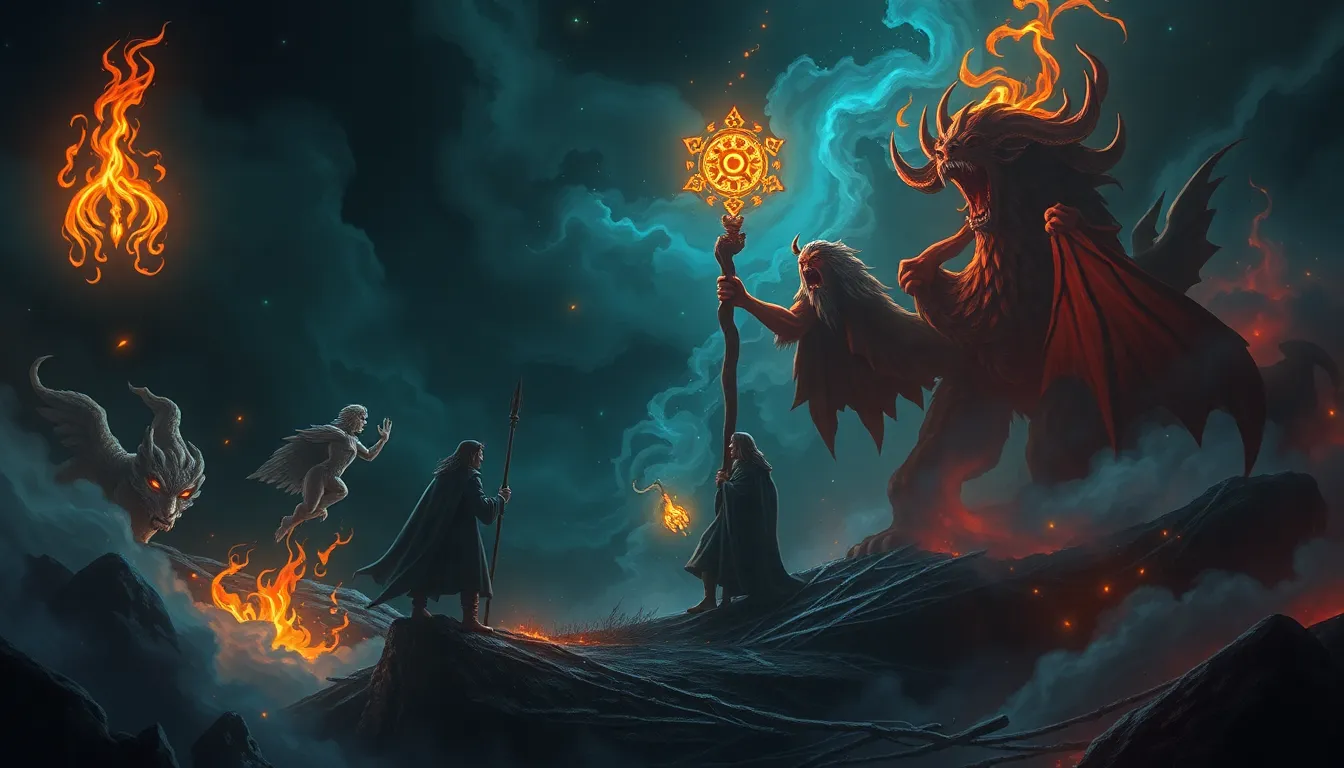Are Myths Justified? The Moral Lessons Hidden in Folklore
I. Introduction
Myths and folklore are narratives that have been passed down through generations, often embodying the beliefs, values, and traditions of a culture. These stories, ranging from the grand epics of ancient civilizations to the humble tales told around campfires, serve as essential components of human history and identity. Understanding the moral lessons embedded within these narratives is crucial, as they not only provide entertainment but also shape our understanding of right and wrong.
This article argues that myths are not merely cultural artifacts but are also vessels of moral lessons that influence behavior and societal values. By exploring the role of myths in human culture, common themes found in folklore, and specific examples, we can uncover the profound ethical teachings that these stories convey.
II. The Role of Myths in Human Culture
Throughout history, myths have played a significant role in shaping human culture across various civilizations. They are often seen as reflections of societal norms and values, offering insights into the beliefs that govern a community.
- Historical Significance: Myths can be traced back to ancient societies, where they were used to explain natural phenomena, teach moral lessons, and unite communities.
- Reflection of Norms: They often encapsulate the ideals and values of the society from which they originate, serving as a mirror for cultural self-examination.
- Psychological Impact: Storytelling has a deep psychological impact, aiding in personal identity formation and moral development from a young age.
III. Common Themes in Folklore
Myths often revolve around common themes that resonate across cultures, highlighting universal moral dilemmas and ethical lessons.
- Good vs. Evil: Many myths explore the duality of good and evil, teaching audiences about the consequences of moral choices.
- Heroism and Sacrifice: Stories of heroes often emphasize bravery and selflessness, inspiring individuals to act for the greater good.
- Consequences of Actions: Folklore frequently illustrates the principle of cause and effect, reminding listeners that actions have repercussions.
IV. Analyzing Specific Myths for Moral Lessons
To better understand the moral lessons in myths, we can examine specific stories from different cultures:
- Greek Mythology: The tale of Icarus teaches about the dangers of hubris, as Icarus disregards his father’s warnings and flies too close to the sun, resulting in his fall.
- Native American Folklore: The story of the trickster highlights the importance of wisdom and the necessity of being cautious, as the trickster’s antics often lead to unforeseen consequences.
- African Folktales: The tales of Anansi the Spider showcase the value of cleverness and resourcefulness, teaching that intelligence can triumph over brute strength.
V. The Evolution of Myths Over Time
Myths are not static; they evolve with society, reflecting changes in cultural values and beliefs. This evolution can be observed through several lenses:
- Modern Retellings: Contemporary adaptations of myths can influence moral interpretations, often reshaping traditional narratives to align with modern values.
- Globalization: As cultures interact, folklore may blend, leading to new interpretations and hybrid myths that carry fresh moral messages.
- Technology: The digital age has allowed for the preservation and dissemination of folklore, but it also raises questions about authenticity and interpretation.
VI. Myths in Contemporary Society
Despite their ancient origins, myths remain relevant in contemporary society, influencing modern ethical discussions and cultural narratives.
- Relevance in Ethics: Ancient myths often provide frameworks for addressing current ethical dilemmas, serving as case studies for moral reasoning.
- Popular Culture: Myths are deeply embedded in movies, literature, and art, where they continue to impart moral lessons and spark reflection on human behavior.
- Collective Identity: Myths contribute to collective identity, reinforcing shared values and cultural heritage in increasingly diverse societies.
VII. Critiques of Myths and Their Morality
While myths convey valuable lessons, they are not without their critiques. Several concerns arise regarding their interpretation and the implications of retelling these stories:
- Misinterpretation: The potential for oversimplification of moral lessons can lead to misconceptions about the complexities of ethical dilemmas.
- Cultural Appropriation: Retelling myths from other cultures raises ethical questions about ownership and respect for the original narratives.
- Justified Morals: Not all myths provide justified moral lessons; some may perpetuate harmful stereotypes or outdated beliefs.
VIII. The Role of Education in Understanding Myths
Education plays a crucial role in helping individuals understand and interpret myths responsibly.
- Teaching Folklore: Incorporating folklore into educational curricula can foster cultural appreciation and ethical reasoning among students.
- Critical Thinking: Encouraging critical thinking about moral lessons in myths allows for a deeper understanding of their relevance and implications.
- Contextual Importance: Understanding the historical and cultural context of myths is essential for accurate interpretation and appreciation.
IX. Future Directions: Myths and Moral Lessons in a Changing World
As society continues to evolve, so too will the stories we tell. The future of myths and their moral lessons will be shaped by several factors:
- New Media: The rise of new media platforms offers opportunities for the creation and dissemination of modern myths that address contemporary moral issues.
- Creating New Myths: There is potential for crafting new myths that resonate with current societal challenges, reflecting the values and ethics of today’s world.
In conclusion, myths serve as significant moral compasses within human culture, offering timeless lessons that continue to influence behaviors and societal values. By understanding these narratives, we gain insight into the human experience and the ethical dilemmas that persist across generations.



